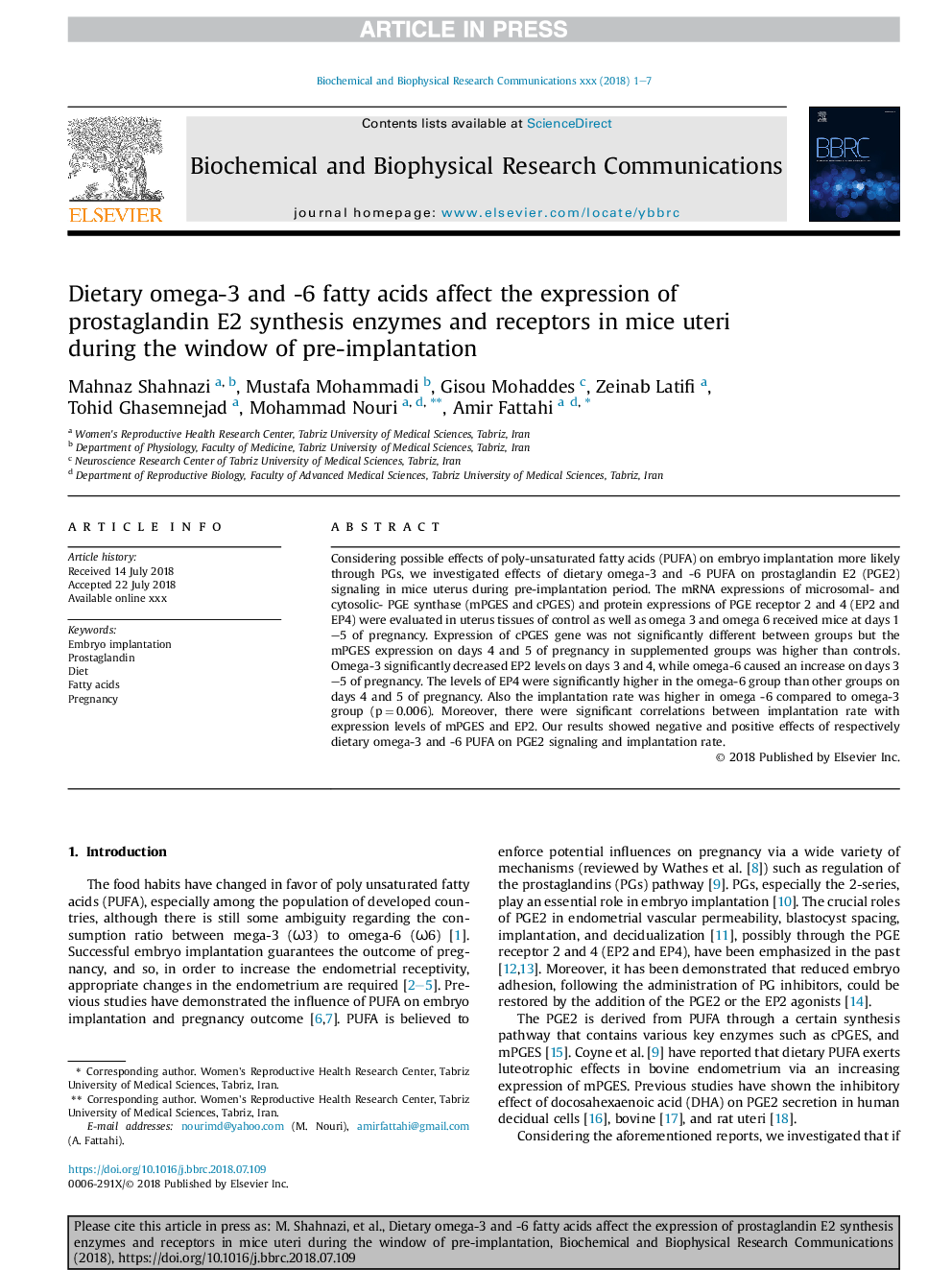| Article ID | Journal | Published Year | Pages | File Type |
|---|---|---|---|---|
| 8956021 | Biochemical and Biophysical Research Communications | 2018 | 7 Pages |
Abstract
Considering possible effects of poly-unsaturated fatty acids (PUFA) on embryo implantation more likely through PGs, we investigated effects of dietary omega-3 and -6 PUFA on prostaglandin E2 (PGE2) signaling in mice uterus during pre-implantation period. The mRNA expressions of microsomal- and cytosolic- PGE synthase (mPGES and cPGES) and protein expressions of PGE receptor 2 and 4 (EP2 and EP4) were evaluated in uterus tissues of control as well as omega 3 and omega 6 received mice at days 1-5 of pregnancy. Expression of cPGES gene was not significantly different between groups but the mPGES expression on days 4 and 5 of pregnancy in supplemented groups was higher than controls. Omega-3 significantly decreased EP2 levels on days 3 and 4, while omega-6 caused an increase on days 3-5 of pregnancy. The levels of EP4 were significantly higher in the omega-6 group than other groups on days 4 and 5 of pregnancy. Also the implantation rate was higher in omega -6 compared to omega-3 group (pâ¯=â¯0.006). Moreover, there were significant correlations between implantation rate with expression levels of mPGES and EP2. Our results showed negative and positive effects of respectively dietary omega-3 and -6 PUFA on PGE2 signaling and implantation rate.
Related Topics
Life Sciences
Biochemistry, Genetics and Molecular Biology
Biochemistry
Authors
Mahnaz Shahnazi, Mustafa Mohammadi, Gisou Mohaddes, Zeinab Latifi, Tohid Ghasemnejad, Mohammad Nouri, Amir Fattahi,
